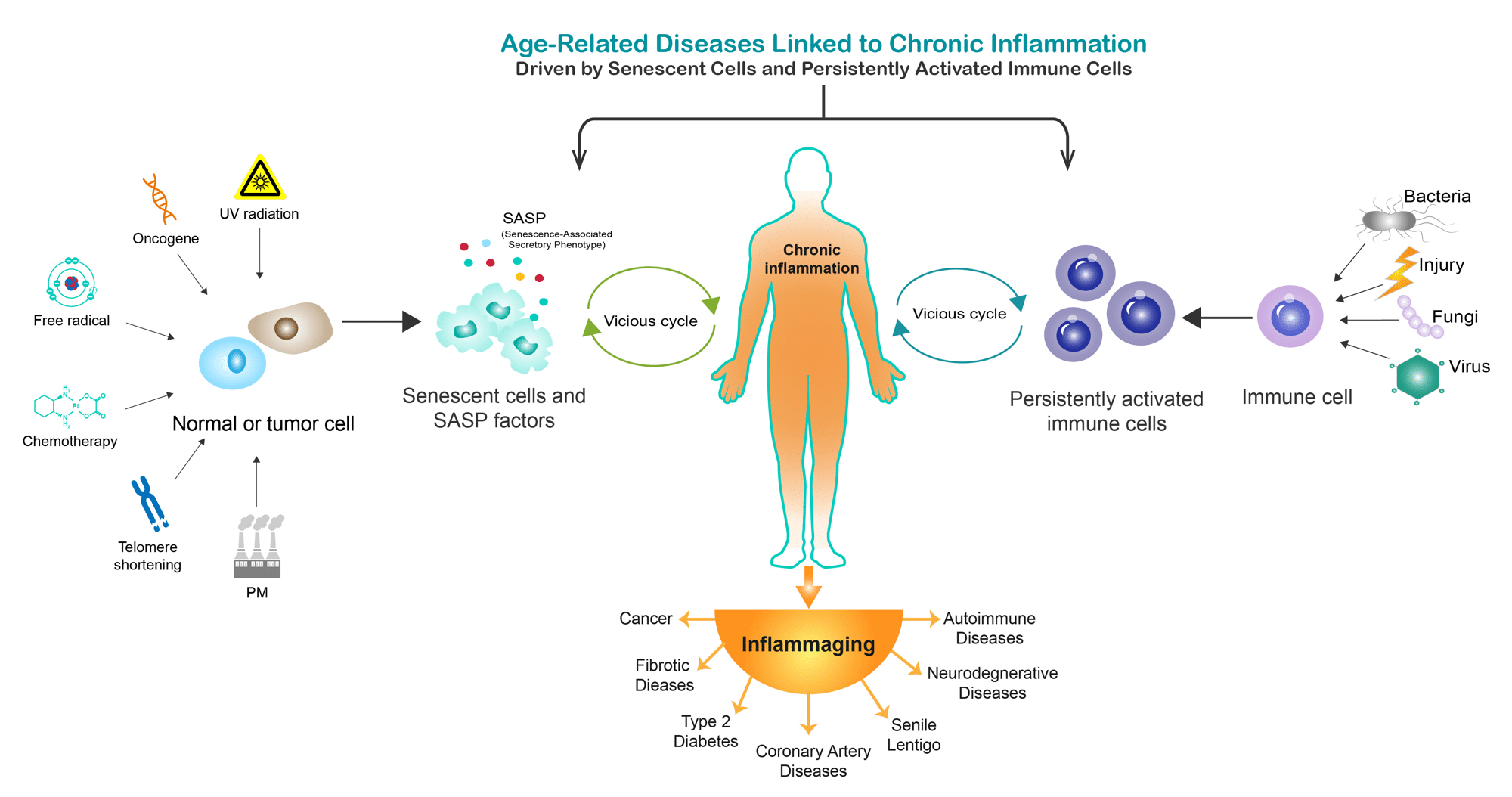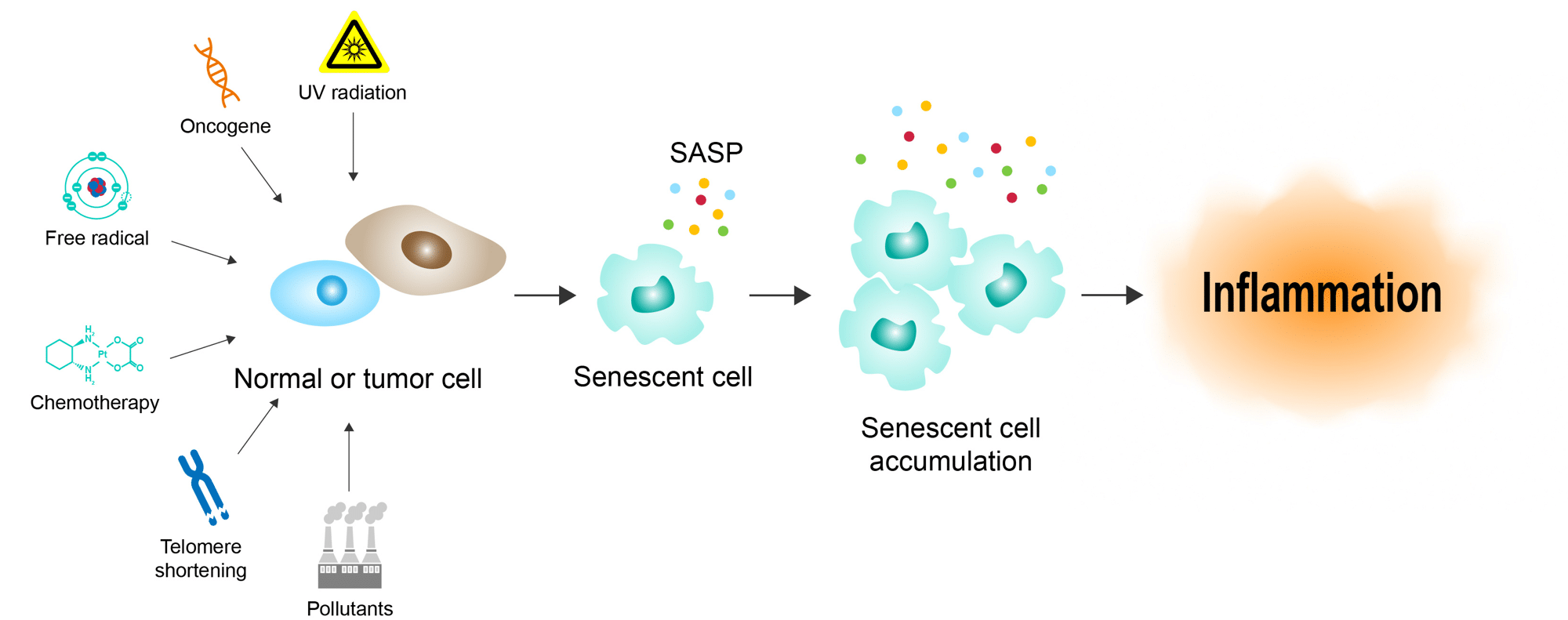The Science
Chronic Inflammation with Aging: Inflammaging
Inflammaging is a state of chronic inflammation believed to develop with advancing age. Accumulation of senescent cells, along with the SASP factors they secrete, has been implicated as a major source of chronic sterile inflammation leading to many age-related pathologies. Demographically, the world is rapidly growing older and more prone to inflammaging. All countries face major challenges to ensure that their health and social systems are ready to make the most of this demographic shift. According to the World Health Organization, in 2020, the number of people aged 60 years and older outnumbered children younger than 5 years. By 2030, 1 in 6 people in the world will be aged 60 years or over. In 2020, the population aged 60 years and over was estimated to be 1.4 billion people. By 2050, the world’s population of people aged 60 years and older is expected to double to 2.1 billion people.
As we grow older, a series of complex changes ripple through our immune system. Rising levels of inflammatory factors lead to unresolved, degenerative immune responses. Mounting evidence suggests that this inflammation undermines many bodily systems, accelerates biological aging and contributes to age-related diseases, such as cancer, cardiovascular disease, diabetes, and neurodegenerative disease.

Senescence: SASP Factors Secreted by Senescent Cells Trigger Chronic Inflammatory Responses
Cellular senescence is a biological condition resulting from the impact of stressors, such as chemotherapy, radiation, and pollutants, on human cells. These stressors reduce natural human cell cytotoxicity, leading to the accumulation of senescent cells and SASP factors. Considered harmful to neighboring cells, secreted SASP factors also activate a type of protein molecule called inflammasomes that accelerate the increasingly persistent cycle of inflammation. As we age, senescent cells accumulate, and SASP factors increase, leading to low-grade, chronic inflammation and age-related diseases. At HCW Biologics, our proprietary immunotherapy platforms rejuvenate the immune system, allowing it to reduce accumulated senescent cells and silence activated inflammasomes. This disrupts the link between aging and chronic diseases.

Persistently Activated Immune Cells: Inflammatory Factors They Secreted Trigger Chronic Inflammatory Responses
Immune cells defend against infection or tissue injury. These activated immune cells persist as we age, even in the absence of infection, and regulate the release of pro-inflammatory factors. As inflammatory factor levels increase, this fuels a feedback cycle of inflammasome activation and leads to the persistent, low-grade body-wide inflammation associated with many age-related diseases.


